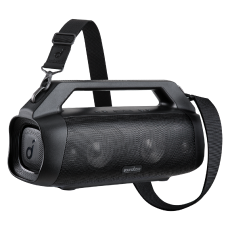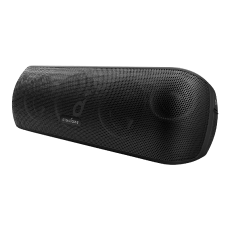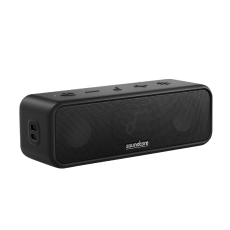Why Can't I Sleep? Causes and Solutions

Have you ever found yourself staring at the ceiling at 2 a.m., wondering, "Why can't I sleep?" You're definitely not alone in this nightly struggle. Today, we're diving into the reasons that might be keeping you awake, from lifestyle choices to underlying health conditions. Plus, we'll share some straightforward tips on what to do when sleep just won't come. Along the way, we'll tackle some common questions about sleep, like whether white noise actually helps, and whether forcing yourself to sleep is ever a good idea. Get ready for some practical advice that'll help you say goodbye to those wide-awake woes and hello to peaceful nights.
Why Can't I Sleep at Night?

Many people find themselves tossing and turning at night, tired but can't sleep. Understanding the reasons behind your sleeplessness can be the first step towards finding a solution. Here are common causes:
1. Stress and Anxiety: One of the most common causes of insomnia is the presence of stress or anxiety. Your mind may be cluttered with thoughts about your day or worries about the future, which can prevent the relaxation necessary for sleep.
2. Poor Sleep Environment: The conditions in which you try to sleep play a significant role in how well you can do so. An environment that’s too noisy, too bright, or too hot or cold can make it difficult to fall asleep or stay asleep. The comfort of your mattress and pillows also affects your sleep quality.
3. Irregular Sleep Schedule: If your sleep schedule varies significantly from day to day, it can disrupt your body's internal clock, or circadian rhythm. This disruption can make it hard to fall asleep at a consistent time.
4. Medical Conditions: Numerous medical conditions can impact your sleep. Conditions such as sleep apnea, restless legs syndrome, chronic pain, diabetes, and heart disease are known to cause sleep disturbances.
5. Medications: Certain medications can contribute to insomnia. Stimulants (like those used to treat ADHD), some antidepressants, corticosteroids, and medications containing caffeine can disrupt sleep patterns.
6. Overuse of Stimulants: Consuming stimulants such as caffeine and nicotine close to bedtime can keep you awake. Caffeine can stay in your system for up to 8 hours; thus, a cup of coffee in the late afternoon can affect your sleep.
7. Electronic Devices: The blue light emitted by screens on smartphones, computers, and televisions can interfere with the production of the sleep hormone melatonin. Using these devices before bed can make it significantly harder to fall asleep.
8. Diet and Exercise Habits: Eating heavy meals late in the evening can lead to discomfort and indigestion, which can keep you up. Additionally, lack of regular exercise can decrease the quality of your sleep, though exercising too close to bedtime can also keep you awake.
9. Hormonal Changes: Fluctuations in hormones such as estrogen and progesterone during menstrual cycles, pregnancy, or menopause can significantly impact sleep quality. For example, during menopause, night sweats and hot flashes can disrupt sleep.
10. Psychological Issues: Mental health disorders such as depression, anxiety, bipolar disorder, and schizophrenia can lead to instances where you 'can't sleep through the night.' Often, these sleep issues can be both a symptom of the disorder and a contributor to the severity of the mental health problem.
11. Alcohol Consumption: While many believe that alcohol helps with falling asleep, it actually reduces the quality of sleep, particularly reducing REM sleep which is considered the most restorative phase. Alcohol can also cause you to wake up frequently during the night.
12. Excessive Napping: Taking long or frequent naps during the day can affect your nighttime sleep patterns. While short naps (20-30 minutes) can be restorative, longer naps can make it harder to fall asleep at night.
13. Sleep Paralysis and Nightmares: Episodes of sleep paralysis or frequent nightmares can lead to fear of going to sleep, which in turn can trigger insomnia. These conditions are often linked with other sleep disorders, including narcolepsy and sleep apnea.
14. Hot Showers Before Bed: While a warm bath or shower can be relaxing, taking one too close to bedtime might actually hinder your sleep. The rise in body temperature, followed by a rapid cooldown, can stimulate the body and increase alertness. Typically, your body cools down naturally as it prepares for sleep, and this sudden change can disrupt that natural thermoregulation process.
Each of these factors can independently or in combination disrupt your normal sleep cycle, leading to sleepless nights.
What to Do When You Can't Sleep?

There are several tips for better sleep:
1.Create a Relaxing Bedtime Routine: Develop a consistent pre-sleep routine that signals to your body it's time to wind down. This could include activities like reading, journaling, or gentle stretching.
2.Set a Sleep Schedule: Go to bed and wake up at the same time every day, even on weekends. This helps to regulate your body's clock and can help you fall asleep and stay asleep for the night.
3.Optimize Your Sleep Environment: Ensure your bedroom is conducive to sleep. Keep it cool, dark, and quiet. Use blackout curtains and consider adjusting the temperature to between 68-77 degrees Fahrenheit (20-25 degrees Celsius).
4.Limit Stimulants: Avoid caffeine and nicotine close to bedtime as they can keep you awake. Also, try to limit heavy meals and alcohol in the evening, as they can disrupt sleep later in the night.
5.Use Sleep Earbuds: Incorporate sleep earbuds or noise-cancelling headphones into your bedtime routine if you are sensitive to noise. These devices can help block out disruptive sounds like traffic or noisy neighbors. Additionally, you can use them to listen to soothing sounds or white noise, which have been found to aid in falling asleep faster and achieving deeper sleep. For those particularly sensitive to noise, incorporating sleep earbuds like the soundcore Sleep A20 can be a game-changer for your bedtime routine. These earbuds are specifically designed to help block out disruptive noises, such as traffic or noisy neighbors, enhancing your sleep quality.
Offering exceptional passive noise isolation, the soundcore Sleep A20 earbuds incorporate patented Air-capsule ear wings and Dual-layer ear tips to effectively block external noises, ideal for a quiet sleep. They are ergonomically designed, providing ultimate comfort. These earbuds feature a long-lasting battery capable of providing up to 14 hours of play in sleep mode, coupled with a stable Bluetooth 5.3 connection for seamless streaming of your favorite relaxing sounds. Additionally, the Sleep A20 includes sleep monitoring features to help users optimize their sleep patterns.

6.Keep a Sleep Diary: Maintain a sleep diary to track what helps and what hinders your sleep. Note down the times you go to bed and wake up, the quality of your sleep, and any disturbances you experience.
7.Exercise Regularly: Regular physical activity can help you fall asleep faster and enjoy deeper sleep. However, timing is important—try to finish any vigorous exercise at least three hours before bedtime.
8.Manage Light Exposure: Exposure to natural light during the day helps keep your circadian rhythms healthy, which improves daytime energy as well as nighttime sleep quality and duration. In contrast, try to avoid bright screens within 1-2 hours of your bedtime because the blue light emitted can make it harder to fall asleep.
9.Use Aromatherapy: Certain scents, such as lavender or chamomile, are known for their calming effects and can help promote sleep. Consider using essential oils in a diffuser or as part of a bedtime bath ritual.

10.Practice Mindfulness or Yoga: Engaging in mindfulness practices or yoga can reduce stress, which is often a key culprit behind sleep difficulties. These practices help calm the mind and prepare your body for sleep.
11.Consider Over-the-Counter Remedies: There are non-prescription options that can help facilitate sleep, such as melatonin or herbal supplements like valerian root. However, these should be used cautiously and ideally under the guidance of a healthcare provider.
12.Seek Professional Advice: If your sleep problems persist, consider seeking advice from a healthcare provider. They can offer guidance based on your specific circumstances and may recommend further treatments such as cognitive behavioral therapy for insomnia (CBT-I).
By incorporating these strategies, particularly the use of noise blocking earbuds like the soundcore sleep earbuds, you can improve your chances of getting a good night’s sleep.
FAQ
Should you force yourself to sleep if you can't sleep?
Forcing yourself to sleep is counterproductive. Instead, try getting out of bed and engaging in a quiet, non-stimulating activity until you feel tired. This can be more effective than lying in bed frustrated.
Will your body eventually fall asleep if you can't sleep?
While the body has a natural drive for sleep, excessive stress or anxiety can override this drive, leading to prolonged periods of wakefulness. It's essential to address the underlying issues rather than hoping the body will overcome them on its own.
Do white noises help with insomnia?
Yes, white noise can be beneficial for people with insomnia. It helps mask environmental noises and creates a consistent auditory environment conducive to sleep. Devices like the soundcore Sleep A10 and A20 earbuds can provide white noise and other soothing sounds to improve sleep.
Conclusion
Understanding "Why can't I sleep?" involves looking at various personal and environmental factors. By addressing these issues through appropriate lifestyle changes and aids like sleep earbuds, you can improve your sleep quality significantly. Remember, if sleep problems persist, consulting a professional is advisable to get tailored advice and treatment options.














































